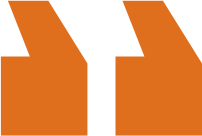Prescription Drug Misuse Prevention
We are here to provide you with information and resources to support you in making informed decisions about prescription drug use. We do this through educational messaging, resource promotion and campus partnerships.
What is Prescription Drug Misuse?
Prescription drug misuse is the non-medical use of prescription drugs, which includes taking them for purposes other than their intended use, using them without a valid prescription or using them in a manner or dosage other than prescribed.
percentages of UT students that reported misuse of common prescription drugs according to a 2022 study1
Stimulants — used to treat attention deficit hyperactivity disorder (ADHD) and sometimes referred to as "study drugs" (e.g. Adderall, Ritalin, Concerta).
Sedatives — used to relieve anxiety or help a person sleep (e.g. Valium, Xanax, Klonopin)
Opioids — used to relieve pain (e.g. Vicodin, OxyContin, Percocet)
How can prescription drug misuse be harmful?
Misusing prescription drugs can lead to serious side effects for both mental and physical health, as well as medical consequences such as increased potential for dependence, addiction and overdose.
What are strategies for safer use of prescription drugs?
Practice safe storage and disposal.
- Store your prescription drugs securely and do not share them with others.
- Bring expired or unused medication to your local pharmacy or pharmaceutical disposal location for safe disposal. Learn more about disposal.
- Do not share any of your prescribed medications.
Talk to your healthcare provider.
- Discuss any concerns and/or potential interactions with other substances or medications that you may be using with your healthcare provider.
- Read your medication label instructions carefully and only take medications as prescribed.
- Monitor how your body responds to your medications. If you experience side effects, contact your healthcare provider.
If you aren’t sure what to say in response to someone asking for or offering you a prescription drug, here are some examples:
What to say if someone asks for your medication.
I'm almost out.
I don't take that anymore.
I'm worried you'll react badly.
I only have enough pills for me.

What to say if someone offers you prescription medication.
I can't accept this.
I am allergic to that medication.
I am worried I will react badly.
I don't use that.

How can I prevent overdose?
Naloxone is a medication used to reverse the effects of an opioid overdose. Narcan, the nasal spray version of naloxone, is available for free and anonymously for UT Austin students, faculty and staff at the security desk in the Perry Castañeda Library as well as at the (SSB 1.106). Learn more about naloxone and where to access it at UT Austin.
If you believe someone has overdosed, you should always call for help. Current UT students can avoid formal University disciplinary action and the creation of a formal disciplinary record when they call for help for an alcohol or drug-related medical emergency due to UT’s Student Amnesty for Alcohol and Drug Emergencies policy.
If you are concerned about someone and aren’t sure what to do, contact the Behavior Concerns Advice Line: 512-232-5050 or report the concern anonymously online.
Resources for Prescription Drug Misuse
There are safer, long-term solutions to the common reasons prescription medications are misused. On-campus resources that can provide support include:
- The Sanger Learning Center offers tutoring, help with study strategies and time management tips.
- The Counseling and Mental Health Center provides support through assessment and referral, group and individual counseling, psychiatry and well-being services. CMHC also has a Substance Use Support Team for students who have questions about their own or someone else’s substance use.
- University Health Services provides medical care and patient education to students at The University of Texas at Austin.
- The Longhorn Wellness Center offers resources, education, student involvement opportunities and more to support student well-being.
- Center for Students in Recovery provides a supportive peer recovery community, recovery coaching, and other resources for students seeking or in recovery from a substance use disorder, process addiction, or who support a loved one who has struggled with substance misuse.
- SHIFT engages the community in dialogue that changes the culture of campus substance use from one of misuse to one of well-being.
- Operation Naloxone, part of the SHIFT program, provides access to and distributes naloxone on campus, offers training opportunities to the UT Austin community, and focuses on education and messaging related to preventing opioid overdose.



